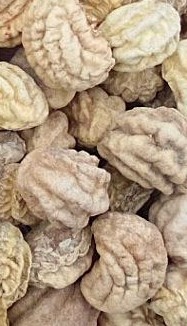 Seeds need water in order to germinate yet some seeds have tough seed coats that prevent moisture from penetrating. The tough seed coat is a protection against early germination that would result in the death of the seedling. In nature the seed coat is gradually broken down by the elements, soil microorganisms, or passing through the digestive tract of birds and other animals so that the seed germinates in spring when seedlings can successfully grow into plants. Seeds with tough seed coats can be treated in several ways to facilitate germination.
Seeds need water in order to germinate yet some seeds have tough seed coats that prevent moisture from penetrating. The tough seed coat is a protection against early germination that would result in the death of the seedling. In nature the seed coat is gradually broken down by the elements, soil microorganisms, or passing through the digestive tract of birds and other animals so that the seed germinates in spring when seedlings can successfully grow into plants. Seeds with tough seed coats can be treated in several ways to facilitate germination.
There are two methods of scarification that are easy and safe for the home gardener.
1. Mechanical Scarification
This method involves nicking the seed near the scar left when the seed was detached from the pod. Large seeds can be nicked with a sharp object such as a knife, razor blade, nail clippers, food grater, or file. Small seeds can be nicked by rubbing them between two pieces of medium grade sandpaper until a slight color change is noted. Care must be taken not to break the seed or damage the embryo inside the seed. Discard water used for soaking as it may contain chemicals from the seeds that inhibit germination.
Seeds that benefit from this treatment include Baptisia (false indigo), bluebonnet, and nasturtium.
2. Chemical Scarification (Soaked)
Although there are a variety of chemicals that can be used, warm water is the cheapest and easiest. Soaking the seeds for 24-48 hours is usually sufficient and changing the water several times aids the process.
Seeds that benefit from this treatment include asparagus, canna, Lirope (lilyturf), okra, parsley, and parsnip.
Some seeds benefit from combination of treatments; mechanically scarification followed by soaking. These include bird of paradise, Hibiscus, lupine, morning glories, and sweet pea.
